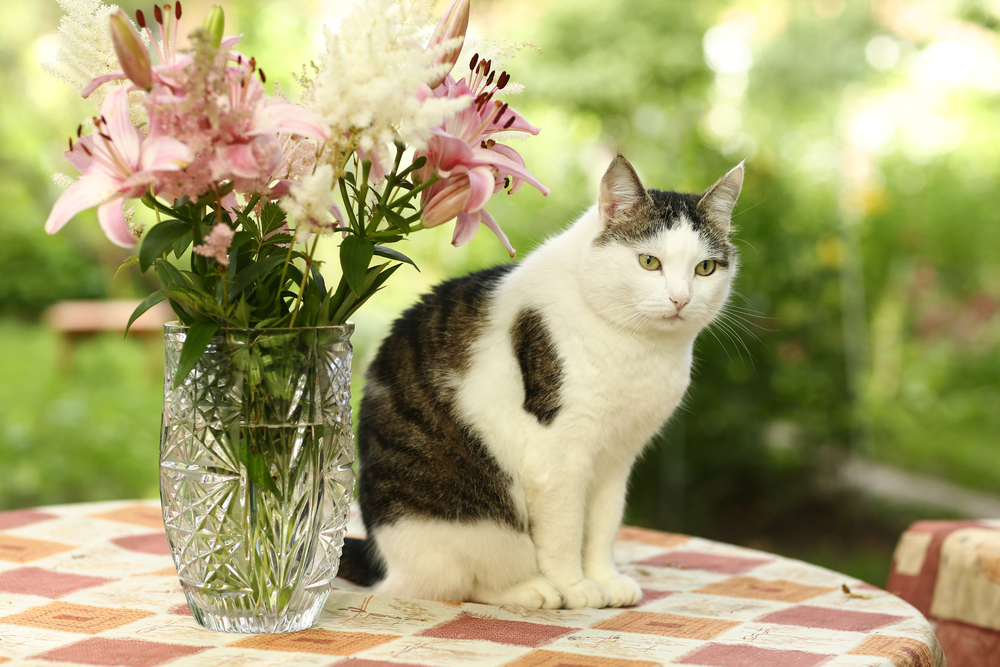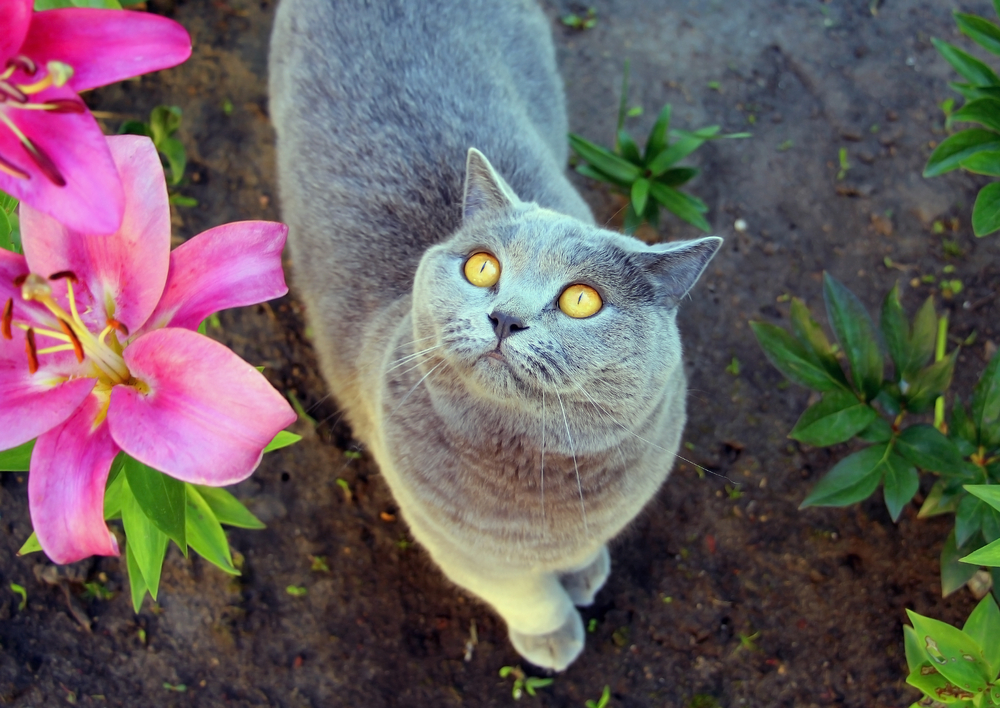
It is quite an unfortunate fact that most cat owners are unaware of the health hazards of lily plants. Flower shops typically do not ask if the recipient of a floral bouquet has a cat in the house and despite educational campaigns from veterinarians, the public is still mostly unaware of just how dangerous lilies are to cats.
It is not an overstatement to say that lilies kill cats. All species of Easter, Japanese, stargazer, tiger, and daylilies (species Lilium and Hemerocallis) are toxic to the kidney of cats. Confusion may arise as many other species of flowers are called lilies (peace lily, lily of the valley, etc.). Some of these plants may also be toxic to cats, although through different mechanisms.
All parts of the lily plant are toxic to cats.
The leaves, flower, pollen, and stem all contain a toxin that causes acute kidney failure. Cats can ingest enough of toxin by grooming pollen off themselves, biting leaves and flowers (swallowing is not necessary), or by the actual swallowing of any part of the lily plant. The curious nature of cats often leads them to investigating houseplants, and a single lick or bite of the plant may pass on a lethal quantity of the toxin within. The exact molecule that causes toxicity is unknown; unfortunately this means there are no blood tests that can be performed to determine if a cat has ingested the toxin.
Some cats may vomit after ingesting the plant due to gastric irritation. This may be helpful in reducing the amount of toxin absorbed into the bloodstream. Unfortunately, many cats will not show any immediate symptoms after ingesting the lily toxin. Acute kidney failure may develop within 2-4 days after ingestion. Cats may be lethargic, anorexic, drink more water, and/or vomit as signs of kidney failure. Bloodwork and urine testing can confirm the presence of kidney failure. Many cats will develop very severe kidney failure (many stop making urine for 1-2 weeks) and require hemodialysis to support them through the toxicity. Approximately 50% of cats will survive kidney failure when treated with dialysis, although it may take 3-4 weeks of dialysis until the kidneys have regenerated enough function to have dialysis discontinued. Many of those cats that survive will recover full kidney function, however some may have some persistent level of chronic kidney damage.
The foolproof method to prevent lily toxicity is to never bring a lily home to a household with cats. Never trust that your cat will avoid the lily plant! Cats who roam outdoors are also at risk if they can be exposed to lilies planted in the yard.

If your cat has been exposed to lilies it is important to have them evaluated by a veterinarian immediately. Most veterinarians will make your cat vomit to try to reduce the amount of ingested toxin. Supportive care including intravenous fluids and oral medications are typically administered for 2-3 days to help prevent the toxin from causing kidney damage. Cats who have developed kidney failure typically require hospitalization and intensive management. Referral for dialysis should be considered early after the diagnosis of kidney failure has been made.
While hospitalization, intensive management, and dialysis may be effective in supporting a cat through kidney failure and allow the kidneys to heal, this is a completely preventable disease. Never bring lilies home to cats! An inexpensive floral bouquet may turn into a very expensive and emotionally tiresome hospitalization for your cat; it is simply not worth it!

JD Foster, VMD, DACVIM (SAIM) heads our Nephrology & Urology Department and has been a member of our Internal Medicine team since joining Friendship in 2016. His extensive knowledge and use of cutting edge diagnostics have earned him international recognition. He runs the only Extracorporeal Blood Purification service in the entire DC/MD/VA/WV/DE region, providing hemodialysis, hemoperfusion, plasma exchange, plasma adsorption, and cell collection.
